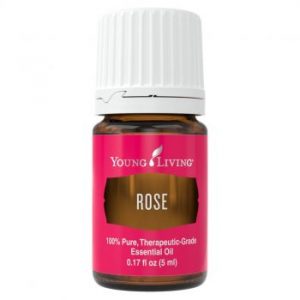Rose Oil & Learning
25.11.2021
Knowing how precious and expensive that little bottle was, I smelled it a lot, but rarely used it. One day I took it with me on a flight, and when I arrived at the other end, the bottle had leaked and my clothes smelt of roses. I took that as a sign from Spirit that I needed to be more liberal with my oil!!!
Can Rose oil improve learning while you sleep?

Effortless learning during sleep is everybody’s dream….but is it possible?
We are learning new things every day – not only in our academic studies, but in everyday life! It can be as diverse as learning new recipes, mastering new technologies, improving our retention skills as we listen to podcasts and educators – even things as simple as remembering the names of people we meet.
In a visit to Melbourne a couple of years ago, I was meeting so many new people (100 in the space of a few days) that I was needing to really concentrate in order to remember everyone’s names.
So you can imagine how excited I was to read this study¹,²!!!
Our sense of smell is the only one of our 5 senses that directly accesses the limbic region of the brain, where memories and associated emotions are stored. The limbic region is the seat of our subconscious.
What’s really fascinating is that smells not only have been shown to improve our daytime levels of concentration and vitality – they’ve also been shown to improve our memory if they’re inhaled while we sleep (especially during slow-wave sleep, which is our deepest non-REM sleep)!

What a fantastic reason to have your essential oil diffuser running at night while you are sleeping! It can actually help you to better remember things that you’ve learned through the day!
What a fantastic reason to have your essential oil diffuser running at night while you are sleeping! It can actually help you to better remember things that you’ve learned through the day!
Researchers from the University of Freiburg’s Medical Center and Faculty of Biology, and the Freiburg Institute for Frontier Areas of Psychology and Mental Health (IGPP) have joined forces in an innovative new study, which was published in the Nature Group’s Open Access journal Scientific Reports on 27 January 2020.
54 students from two 6th grade classes in a school in southern Germany were involved in the study. These students were studying English vocabulary.
One group was aroma-free. The other group was given rose-scented incense sticks on their desks at home while learning English vocabulary and on the bedside table next to the bed at night. This meant they were inhaling aromas during learning and sleeping. In a second experiment, the incense sticks were also placed next to them during an English vocabulary test at school.
It was the students who were exposed to scent who showed a much greater retention of their vocabulary skills than the unscented group.
The study shows that the smell of roses during learning and sleep helps to improve both memory and learning skills by a whopping 30%!

Student teacher Franziska Neumann who was the first author of the experiment stated that, “The students who inhaled the rose aroma both during studying and whilst sleeping showed a 30% increase in learning success….The results also suggest that the additional use of the incense sticks during the vocabulary test promotes memory.”
It was interesting that in further tests, it was shown that the fragrance doesn’t need to be specifically applied only during the non-REM deep sleep cycle.
Exposure to fragrance also works when it is present all night,” says study leader Dr. Jürgen Kornmeier PhD. “This makes the findings suitable for everyday use….Our study shows that we can make learning during sleep easier. And who would have thought that our nose could help considerably in this!”
Beware of the dangers of incense!!!
In Asian countries where incense burning is a daily practice, the air pollution in and around various temples has been shown to have harmful effects on health. On average, burning incense sticks produces more than 4 times the amount of particulates as for cigarette smoke. The pollutants such as adhesive powder and other particulate matter present in high concentrations in incense sticks have been linked to respiratory system dysfunction³.
Although the researchers in the above experiment used Rose incense sticks, I would never recommend this as a way of inhaling fragrance. Most incense sticks on the market contain toxic substances that are harmful to our health.

Using Young Living’s therapeutic-grade essential oils in your diffuser is a much safer way of inhaling aromas, because of their purity.
When added to water in your favourite ultrasonic diffuser, they are misted into the atmosphere without any contaminants.
Alternatively, apply a drop of Rose oil to your chest as you head to bed, and you’ll be breathing it in all night.
And Rose oil has the added benefit of helping to inspire intimacy, love and joy. With one of the highest frequencies of any essential oil (at 320 MHz), who wouldn’t want to be inhaling Rose oil as they sleep!!!
Sources:
- “How odor cues help to optimize learning during sleep in a real life-setting”. Franziska Neumann, Vitus Oberhauser & Jürgen Kornmeier. Scientific Reports doi:10.1038/s41598-020-57613
- https://neurosciencenews.com/rose-smell-learning-sleep-15611/
- “Incense smoke: clinical, structural and molecular effects on airway disease” by Ta-Chang Lin, Guha Krishnaswamy and David S Chi. Clinical and Molecular Allergy. 2008: 6:3. Published online 2008 Apr 25. doi: 10.1186/1476-7961-6-3
A tip when using Rose Oil
Rose oil solidifies in cooler temperatures in much the same way as raw coconut oil.
So if your Rose oil is not coming out of your bottle, simply put the bottle against your skin for 5 to 15 minutes until it’s warmed to body temperature.
This will turn it back into liquid, and then you will be able to dispense the drops(s) that you need.
If you’re not already receiving our weekly
Raw Divinity bulletin, CLICK HERE to subscribe
